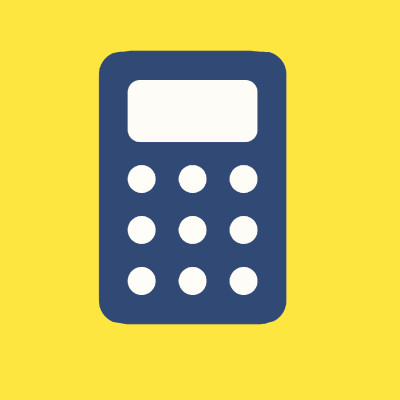
What to Do BEFORE the GED® if your child is still under age 17.
Many home educators with children in their tweens and early teens, ask what they should do to prepare their children for the GED® tests. Candidates must be age 17 or older to be eligible to take the GED®. This page offers tips to help motivate teens as well as recommendations for curricula to use for home education.
Deschooling? What is it and why is it necessary?

If you have recently removed your child from school at start home education, you should first spend a couple of months deschooling.
What is Deschooling?
Deschooling refers to a period to ‘detox’ from the school system. You give your child some down time from formal lessons. You break free from the old routines, habits and mindsets that come with mainstream schooling. In their place, you create new routines in the home and give your child the freedom to explore new interests and hobbies, preferably not on a screen!
For many children, this time is also necessary to start healing emotionally from any bulling, hurts, labels or other harm to their self-esteem, which occured during their season at school. There is no deadline in life.
Your children will not get ‘behind’ during this time of deschooling. Instead of spending time on formal studies, they will be learning about real life – their life!
One of your goals as a parent should be raise up a child who is emotionally healed and whole, who has discovered what they are GOOD at, believes they can succeed at whatever they choose. They need to develop self-confidence and get ready to face life as an adult in the near future.
Encouraging unmotivated teens
Don’t panic if your teen seems that have lost all interest in their studies – especially if they have been at school, but even if they are home educated. It’s quite common. This is a time when they are establishing their identity and autonomy as a young person. Give them a break!
This is a good opportunity to talk to your child calmly about your concerns, yet give them some choice and responsibility for their own lives.
Successful people never drop out of learning, but many of them find alternatives to the status quo.
If your child is not happy with the traditional options, let them find their own path. Challenge them to find things that DO interest them. These don’t need to be traditional school subjects – it could be making videos to share on social media about something they love, photography, growing vegetable organically, breeding pets, kite-flying, renovating old furniture, sewing, buying and selling products, music, art, coding, robotics or you-name-it.
Try not to nag or show disapproval. Give you child support and allow them to experiment and try new things. It can take about 2 years for a child to find a new direction and new motivation. That’s a long time for parents to be patient, but eventually children who have been given the freedom they need, do decide to take ownership of their lives and start working towards a goal of their own choosing. During the waiting time, keep communicating to your child that you believe in them, you see their potential. Tell them that you will support them on their new road to success, when they find it.
Ask your child what to do before the GED®
As children grow in maturity, it’s important to involve them in an increasing capacity when making decisions that affect their lives. We recommend that you have a conversation with your child about their studies.
Ask what subjects and skills they think they:
- NEED to become a successful, self-supporting adult and
- would LIKE to learn because of their own talent or interest.
Help them to research the resources they need to learn these things and to be part of the decision-making process about their future. Learning to research options and then weigh up the pros and cons of each is a life skill they can need to practice, with your guidance.
When you choose home education, you are no longer obligated to follow the school system or try to ‘keep up’ with it. You are no longer on that pathway.
You can now give your child a customised education that is tailored to suit their interests, abilities and talents, and along the way, they can pick up the GED® credential as their school exit examination!
One of the advantages of the GED® is that there is no prescribed curriculum that you are obligated to follow in the years preceding the test. Students who choose the GED® have more time and freedom to let pursue the things they are interested in, whether that is sport, academics, art, music, hobbies or anything else. Then at about age 16, they complete the necessary prep to “jump through the GED® hoop” in order to get that credential.
The GED® tests 4 subjects, so it is sensible to keep up those four subjects and then add whatever else the students wants to learn.
Recommended curriculum products follow.
What’s on the GED® Test?
See what’s on the GED® Test for each subject.
Recommended curricula to use before the GED®
We offer the GED Beginners course for Maths and English for 15 year olds.
I. Mathematical Reasoning
To pass the GED® Maths test candidates must have mastered Algebra and 2- and 3-dimensional Geometry
There are many highly popular and recommended maths curricula for home education. All of them work, so you can choose whichever you prefer or stick with what you know and love, or what suits your budget.
Shirley recommends Math-U-See, including Algebra 1 and Geometry. Take a placement test and start at the level that best matches the student’s current abilities.

2. Science

The GED® tests mainly SKILLS, rather than the knowledge of any specific curriculum or content.
Shirley recommends the Apologia science books by Dr Jay Wile to develop Science skills. You can start with General Science, then Physical Science, followed by any others of your choice, if your time allows.
As with Maths, any alternative reputable science programme should be adequate to develop your child’s knowledge and skills.
For students who are about age 15 and have achieved about Year 10 level, we offer an online GED Beginners programme, which covers Maths and English.
3. Reasoning Through Language Arts (RLA)
As with the other subjects, you can use any home education English curriculum of your choice in the years preceding the GED®.
Our top picks follow:
On part of the RLA test, a student must type a 5-paragraph argumentative essay, so it is vital to learn to structure a good essay. This is a skill that takes time to practice and master. We recommend starting early!
For students age 15 or Year 10 level, we offer the GED Beginners course that covers Maths and English. You will need to add other resources for Science and Social Studies.
Acing the Argumentative Essay
The GED essay task asks students to read two texts on opposing points of view of the same topic. They must then critically evaluate the two passages and decide which one best supports its argument.
Then the student must write their own argumentative essay, stating which passage is best and giving evidence to support their own choice. It’s a complex task and since so many students struggle with this, Shirley created a short tutorial, Acing the Argumentative Essay, to teach these skills and provide additional practice. We recommend this programme for age 16 or older when students are preparing specifically to take the GED® tests.
All my students are also using it when they do English. It is extremely helpful.
Jenny Moore, Principal of Haven Academy
English Grammar and Writing Skills
For general grounding in grammar and writing skills, we recommend the two choices:
1. Writing with Skill, by Susan Wise Bauer which you can order online
OR
2. Structure and Style programme from Excellence in Writing in USA, which you can buy online from Engaging Minds in New Zealand.
Shirley also recommends reading aloud together daily. Reading aloud exposes your children to interesting vocabulary, complex and correct grammar and sentence construction, figures of speech and all the other subtleties of good writing. This builds the database of language in their brains. This input of linguistic data will result in improved output of language as they mature!
The Reasoning Through Language Arts test requires candidates to understand the deeper meaning of texts – things like inferences and innuendoes…so again you can use reading aloud together and discussing what you read critically to develop reasoning and thinking skills.
You can either do-it-yourself using online reading lists and the library, or you can buy great books to have at your convenience from literature-based curriculum suppliers such as those listed below under Social Studies.
4. Social Studies
Shirley always recommends literature-based programmes. Stories are always set in another time (history) and another place (Geography) and good literature is usually about how characters mature and overcome or solve problems. They may resolve relationship issues, overcome fears or resist enemies and these are good life lessons for our children. As you read, you should alway discuss the story and the culture of the day and encourage them to think critically about what they are learning.
Good stories know no age limit so if you have other children in the home that are close in age, you can all learn together.
Sonlight’s Core F – Eastern Hemisphere Nations or Core G – World History or any other Sonlight Core you fancy are super for young teens and tweens!
Otherwise, read aloud whichever books you would like to with your children.
Recommended literature-based programmes:
Sonlight – Christian worldview
Bookshark – Secular worldview
Ambleside online – free (use the library to locate titles)
Age 15 or older –Enrol with Lime Feather Learning™
Candidates may take the GED® from age 17 and upwards. There is no maximum age only a minimum of age 17.
Once your child is age 15 or older if you prefer, you can enrol with Lime Feather Learning™.
For 15 year olds (Year 10) we offer the GED Beginners programme covering Maths and English.
From 16 years (Year 11 or higher) we offer the online GED Prep course which covers all four subjects that the GED tests: Maths, Science, Social Studies and Reasoning through Language Arts (English)
The online programme will assess the student’s starting level and then assign an individualised learning pathway to help the student develop and master all the skills needed to pass the GED® tests.




